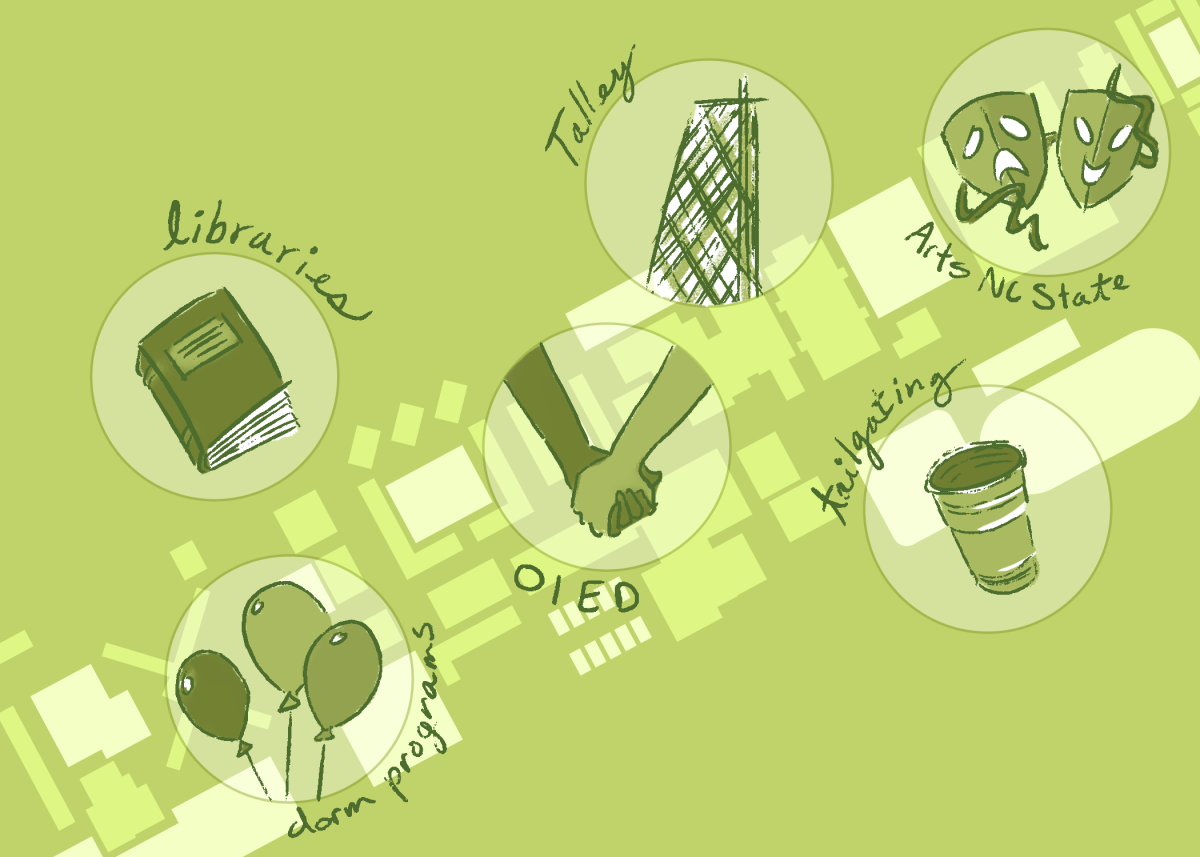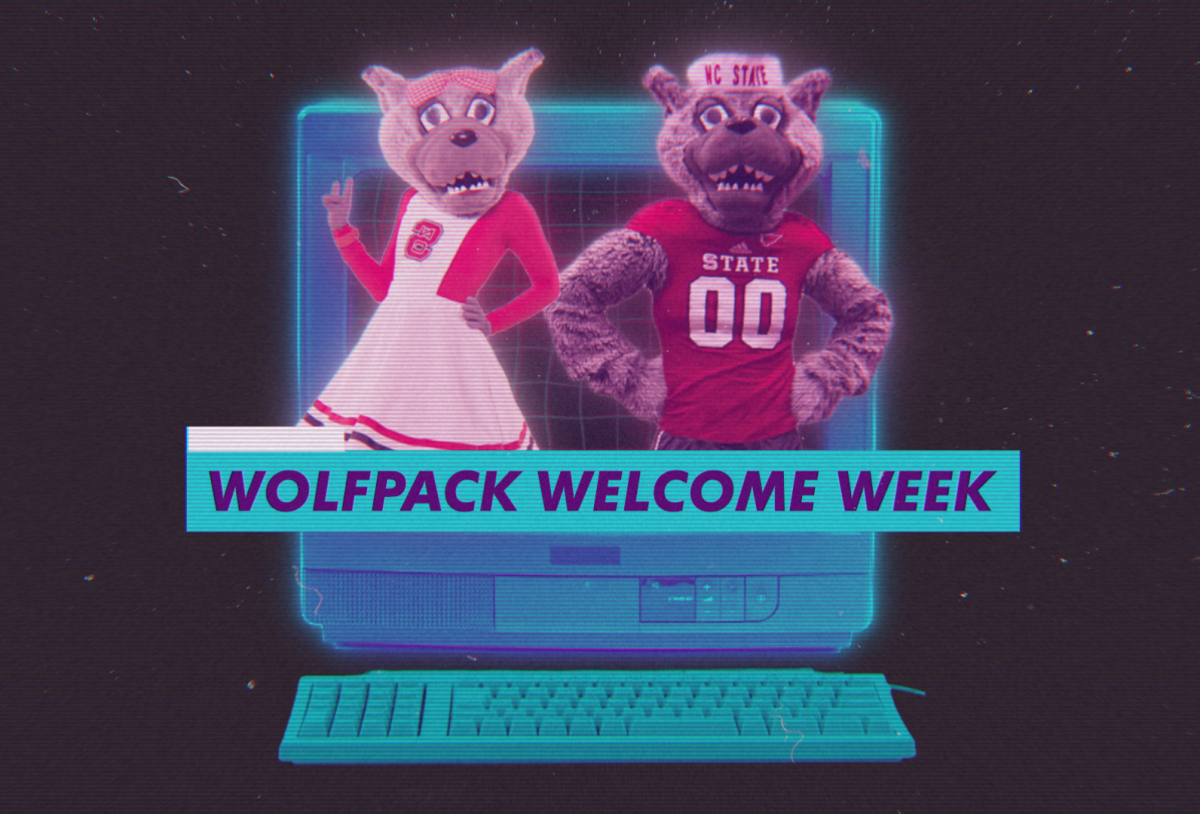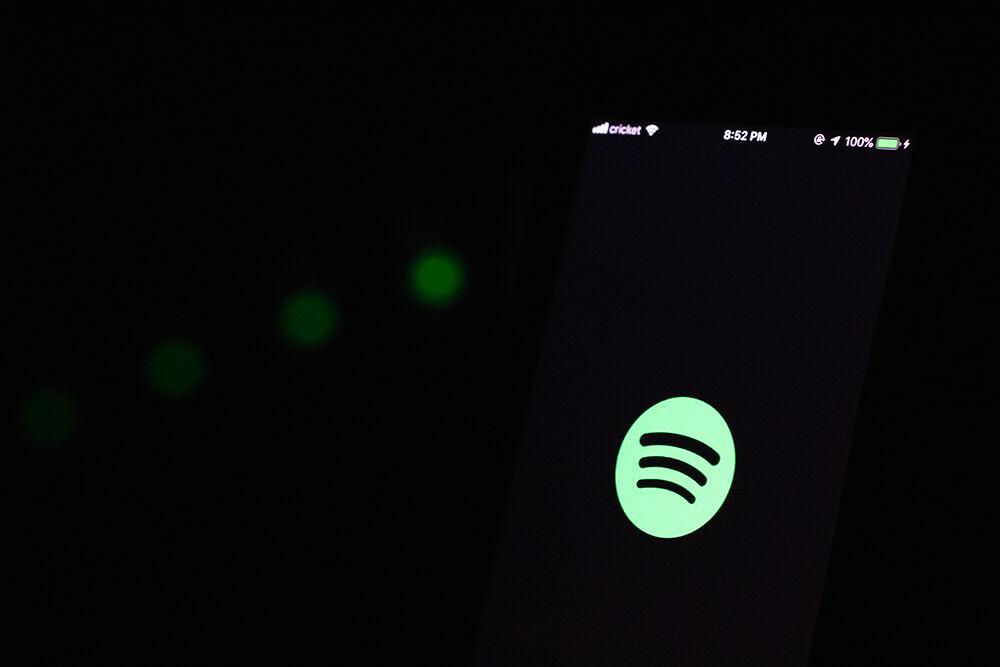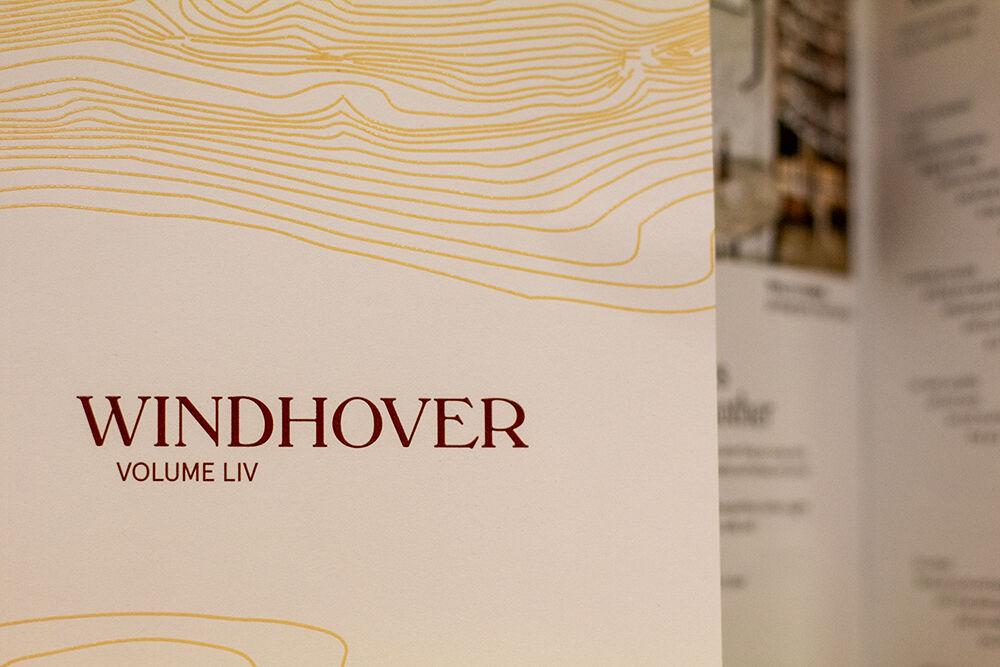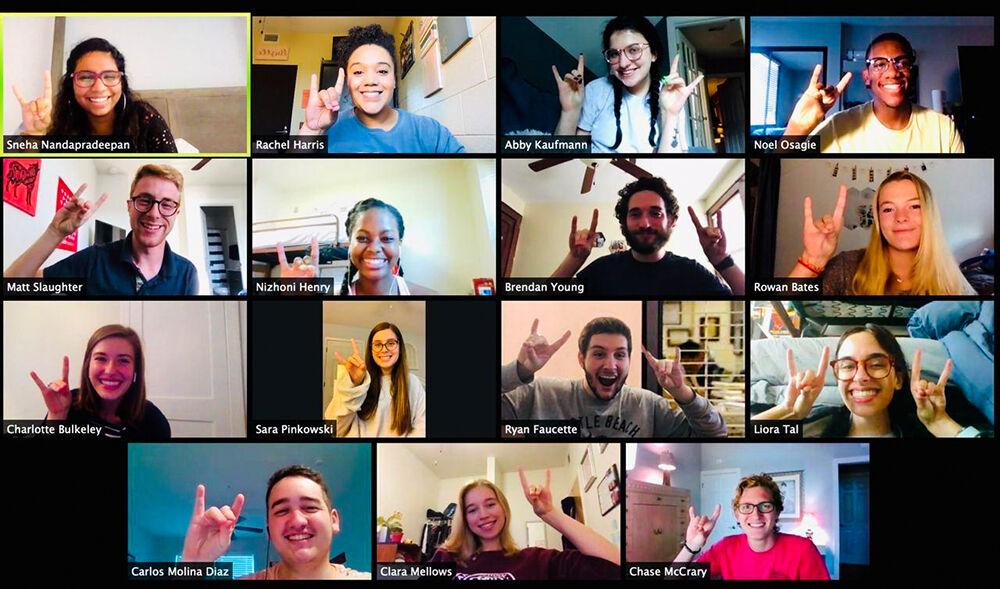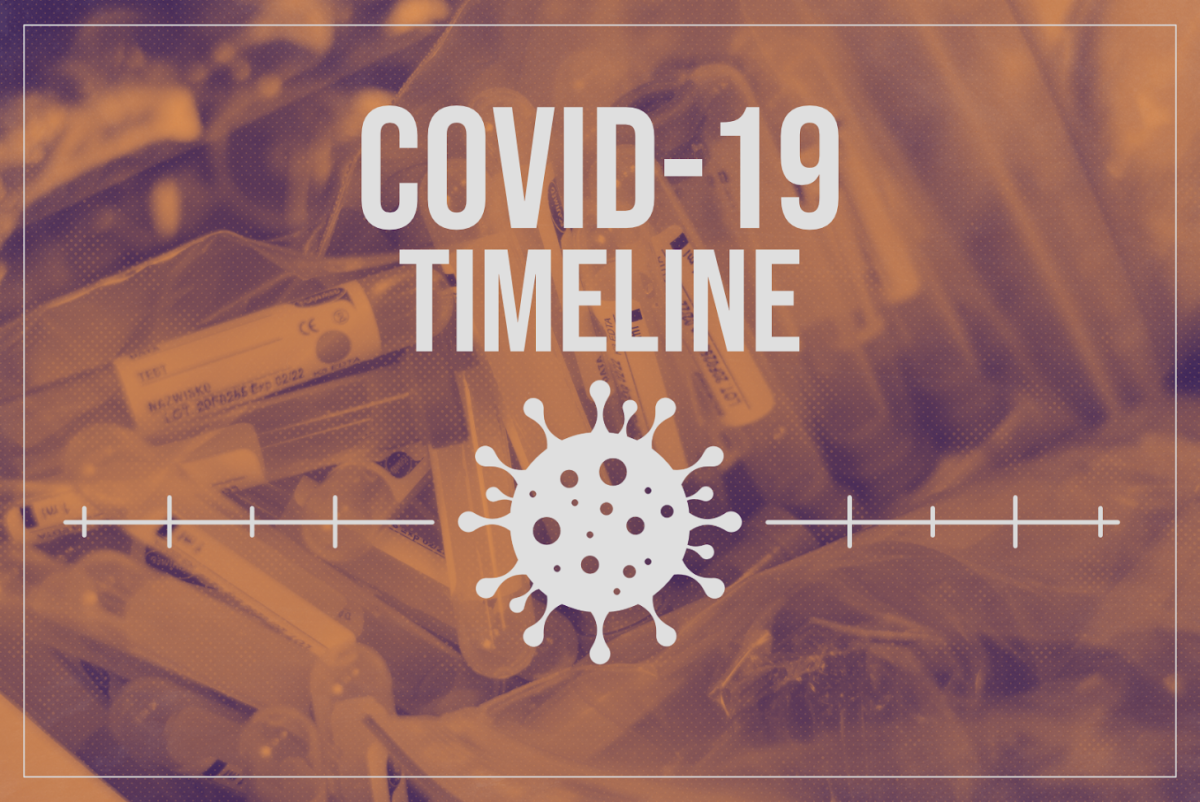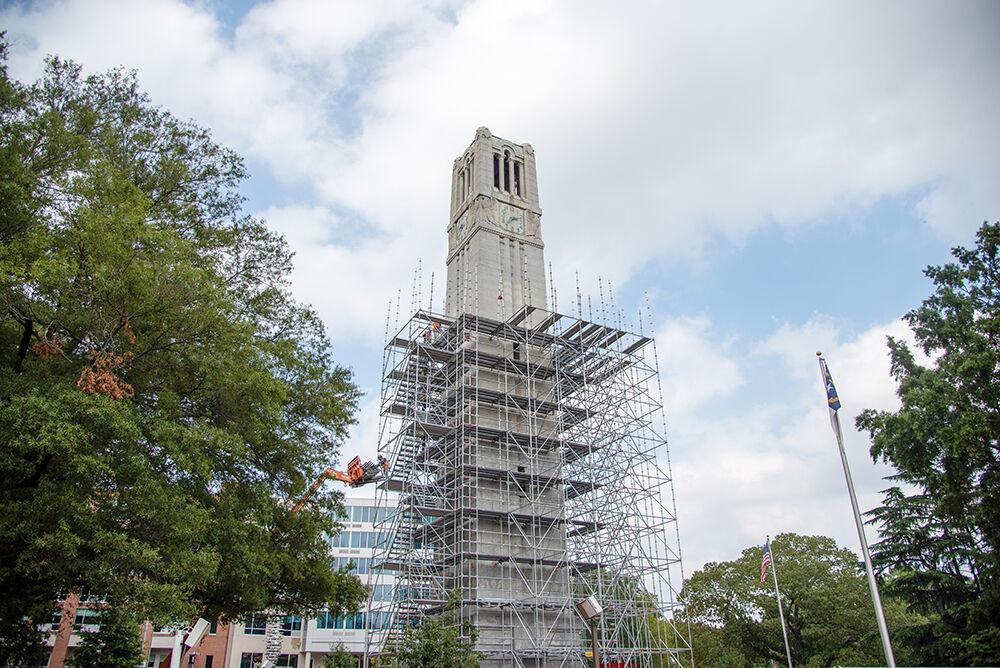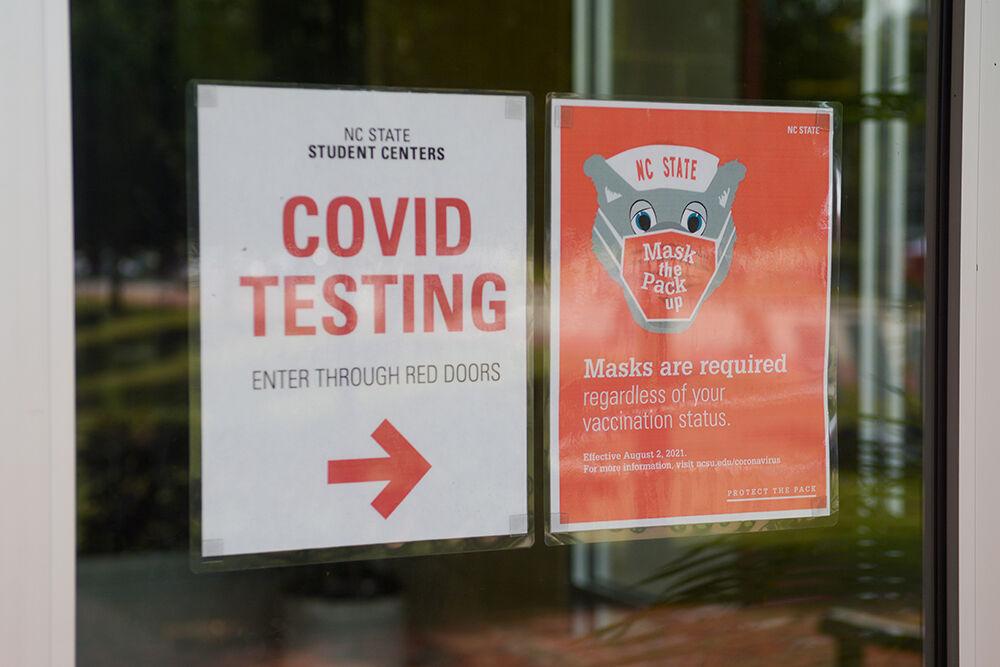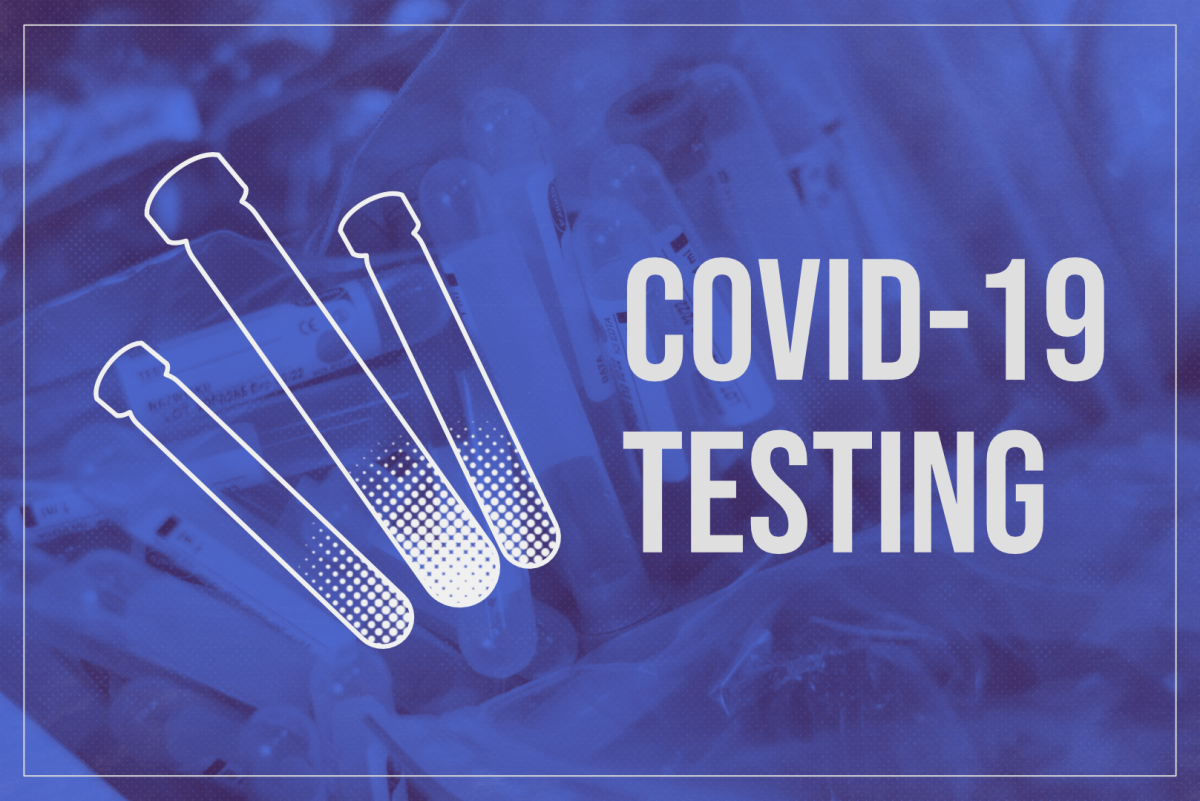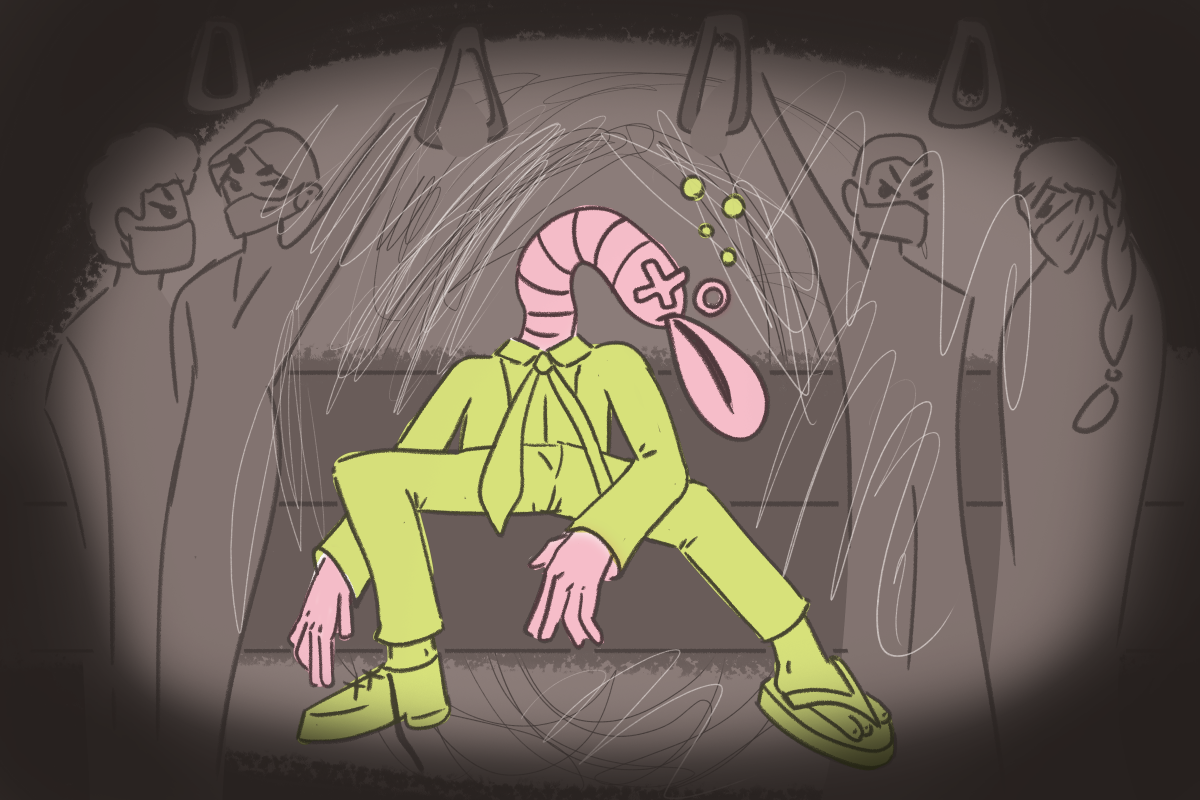OIED Centers
The Office of Institutional Equity and Diversity has four centers around campus that cater to the physical, mental and emotional needs of marginalized groups on campus. The GLBT Center, Women’s Center and Multicultural Student Affairs Center are all located in Talley Student Union and the African American Cultural Center (AACC) is on the third floor of Witherspoon Student Center.
According to Adrienne Davis, the interim senior director for Campus Community Centers and associate director of the Bias Impact Response Team, the centers shifted away from in-person community building due to COVID-19, but have moved to focus more heavily on student support, survivor support and crisis support. The AACC will be able to allow five students at a time, and the three centers in Talley will be able to allow up to four students in each center at a time.
Davis said “this will very much redefine what the first-year experience is,” but wants incoming first-years to know the centers are “willing to take the extra steps necessary for them to know that they are welcome here.” Davis said she doesn’t feel this transition may be more difficult for returning students than first-years.
Davis asks that first-year students be open and communicate with the centers in order to share what they need, so administrators can look at how best to support the community. According to Davis, students need to be aware that there is a possibility the centers could be required to return to all virtual or more limited hours. This is partially due to the fact that cleaning supplies are in high demand, and the centers do not have enough to effectively clean and sanitize their spaces in between visits for an extended period of time.
The centers plan to partner with the Counseling Center to facilitate a heavy focus on student mental health through regular check-ins and specific programming around recovery and mental health.
Talley
Talley Student Union is a hub of campus cultural activity and is one of the main gathering places for students. However, in the age of COVID-19, much of that has had to change.
According to Tim Hogan, the director of Student Centers, there will be around 50% less seating area for students throughout the building to promote social distancing and a reduced capacity for meeting spaces. Hogan anticipates these changes will reduce the population entering Talley on a daily basis by 40-50%.
Because of this reduction in capacity, students looking for on-campus jobs this fall may want to have a backup plan if they plan to apply for a position in Talley. According to Hogan, there will be a reduction in the number of student staff hired in the building. However, all students who had a job when they left campus will be able to return to their job. Hogan said he hopes all students will follow the guidelines to protect themselves and the rest of the students, faculty and staff on campus.
Tailgating
Many students look forward to gathering at the North Carolina State Fairgrounds before every home football game for tailgating. In the era of masks, social distancing and a tentative sports schedule, however, the plan for tailgating has become a bit of an enigma.
According to Fred Demarest, senior associate athletic director for Communications and Brand Management, there is no update right now on tailgating, as NC State Athletics is still looking at logistics for several options.
According to a statement from Director of Athletics Boo Corrigan on July 29, the Atlantic Coast Conference has approved an adjusted 2020 football season format. Even if tailgating doesn’t exist in a normal sense this year, there will at least be football to watch.
Libraries
For many students returning to campus, NC State’s libraries act as an essential resource, allowing students free, reliable internet, while linking them with resources like laptops, chargers and machines in the makerspaces.
As NC State University Libraries prepare for student’s return to campus, Greg Raschke, senior vice provost and director of libraries, said while things might look a little different, the libraries are still committed to offering these services to students.
In order to accommodate for an adequate deep clean in the evening, the libraries are operating under reduced hours. Beginning Aug. 10, both D.H. Hill Jr. Library and James B. Hunt Jr. Library will operate between the hours of 8 a.m. and 10 p.m. Monday through Thursday, 8 a.m. and 5 p.m. on Fridays, 12 p.m. and 5 p.m. on Saturdays, and 12 p.m. to 10 p.m. on Sundays.
In addition to cleaning overnight, the libraries will be cleaning during the day and are providing alcohol wipes for students to use when they leave or enter an area, according to Raschke.
While in the past a lot of the library spaces were designed to bring students together, those spaces have been modified this semester to keep students apart and promote social distancing, according to Raschke. Areas which would have previously facilitated upwards of four individuals will now be limited to accommodate one or two students. In other areas, plexiglass has been put up to provide a physical barrier between students.
Much like the system adopted last semester, students who need laptops for this semester will be able to check them out for the whole semester and return them before leaving campus for break, as opposed to only renting them for a few hours at a time.
In an attempt to monitor both libraries’ capacity, the libraries will have door sensors as well as sensors placed around the library to monitor how crowded different spaces are. These numbers will be observed hourly to allow for adjustments if needed.
That being said, Raschke anticipates the libraries will be able to accommodate approximately 1,000 students in Hill and 800 in Hunt, if students are spread out. If, for some reason, crowding becomes an issue, Raschke said the libraries would consider moving to an online reservation system.
More information about the libraries’ operations can be found at their website, https://www.lib.ncsu.edu/coronavirus-response/what-to-expect, as well as their social media.
Wolfpack Welcome Week
Wolfpack Welcome Week (WWW) is an annual group of events organized by New Student Programs (NSP) that take place the first week or two of the fall semester. This year’s fall WWW is being held from July 31 to Aug. 12.
According to Genna Martella, assistant director of NSP, this is the first year that WWW includes virtual events. In order to abide by CDC and university guidelines, around 65% of the 2020 WWW scheduled events will be virtual. There will be in-person events, but all attendees must wear masks, social distance and adhere to event capacity requirements.
According to the WWW website, three signature events: New Student Convocation, Student Involvement Fair and Moonlight Howl and Run will all be held virtually this year.
For a complete list of WWW events, download the NC State Guides app for a WWW mobile guide.
Sorority Recruitment
According to the Panhellenic Association of NC State’s website, there are three plans regarding formal recruitment for fall 2020.
NC State is currently planning to follow Plan A unless the CDC or university instructs otherwise.
Plan A involves Round 1 being held in person at the McKimmon Center where attendees will have the chance to meet all 10 sororities that participate in formal recruitment.
Round 2 will occur over Zoom, in which attendees will visit up to eight sororities for 30 minutes to discuss their academic initiatives and the reality of living in a sorority house, a requirement for second-year sorority members.
Round 3 will also occur over Zoom. Attendees will visit up to five sororities for 35 minutes to learn about the sorority’s philanthropic goals and events both locally and nationally.
Round 4 will occur in person at the McKimmon Center. Attendees will visit a maximum of two sororities for 45 minutes.
Plan B would mean Rounds 1, 2 and 3 will take place over Zoom, with Round 4 being held in person at the McKimmon Center.
Plan C means that all rounds will take place over Zoom.
Arts NC State
Arts NC State is responsible for facilitating programs and activities related to theatre, music and other visual and performing arts on NC State’s campus.
Arts NC State is offering a number of programs that they always have, according to Rich Holly, executive director for the arts.
Large music ensembles such as the wind ensemble, concert band and marching band with approximately 60, 120 and 350 members respectively will no longer be able to meet conventionally.
Instead, Holly said in order to continue offering each ensemble, members will meet in small groups of approximately 15 students at a time and practice chamber music. Much like the music ensembles, theatre and dance ensembles are going to be reduced to more small group and solo performances, said Holly.
The Crafts Center is also offering 120 classes, with 116 of those being held in person and four online, according to Holly. Additionally, many of the center’s in-person classes have been designed with the ability to shift online if the pandemic worsens.
Finally, the Gregg Museum of Art & Design is set to reopen later this August after having been left untouched since the beginning of the pandemic. Once reopened, the Gregg will be operating on a time entry system.


